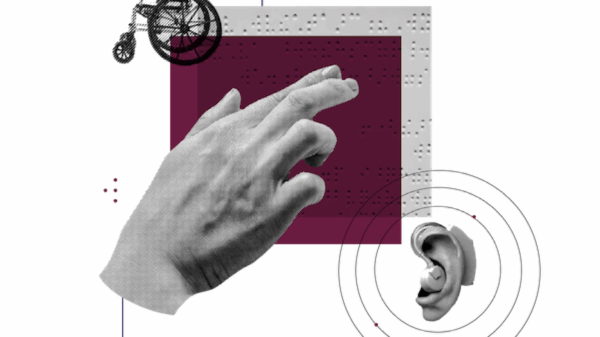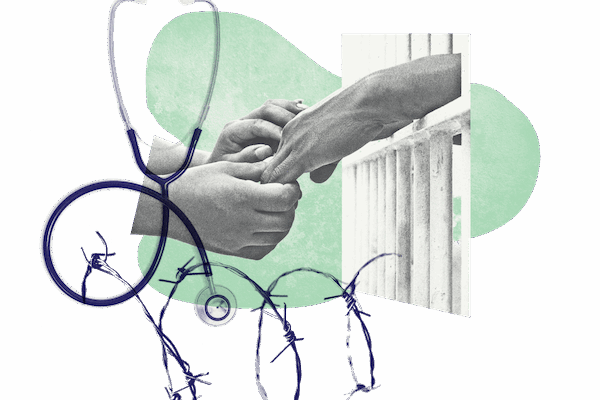PORTLAND — An investigation into Maine’s children’s behavioral health system by the United States Department of Justice (DOJ) finds statewide failures that create a significant risk of segregating and institutionalizing children with disabilities, in violation of the Americans with Disabilities Act.
The Department of Justice issued its findings on the 23rd anniversary of the landmark Supreme Court decision Olmstead v. L.C., which found that unnecessarily segregating people with disabilities into institutional settings violates the Americans with Disabilities Act.
Yet, the DOJ investigation concluded that “Maine unnecessarily segregates children with mental health and/or developmental disabilities, in psychiatric hospitals, residential treatment facilities, and a state-operated juvenile detention facility.”
In the findings letter, DOJ concluded that:
- “Maine’s community-based behavioral health system fails to provide sufficient services. As a result, hundreds of children are unnecessarily segregated in institutions each year, while other children are at serious risk of entering institutions.”
- “Children are unable to access behavioral health services in their homes and communities—services that are part of an existing array of programs that the State advertises to families through its Medicaid program (MaineCare), but does not make available in a meaningful or timely manner.”
- “Maine children with behavioral health needs are eligible and appropriate for the range of community-based services the State offers, but either remain in segregated settings or are at serious risk of institutionalization.”
- “Families and children in Maine are overwhelmingly open to receiving services in integrated settings. In fact, parents indicated a strong preference that their children receive services at home due to trauma, neglect, and abuse that their children reportedly endured in residential facilities within and outside of Maine.”
The significant deficiencies highlighted by DOJ are the result of years of disinvestment in Maine’s children’s behavioral health system. In response to these deficiencies, a coalition of organizations – Disability Rights Maine, ACLU of Maine, GLBTQ Legal Advocates and Defenders (GLAD) and the Center for Public Representation – have been working together to advocate for concrete and urgent reforms at the state level. The coalition has expressed its serious concerns about the state’s failure to provide critical behavioral health services in children’s homes and communities, and is in active discussions with the state about specific ways Maine can improve and build on its existing services.
The following statements can be attributed as noted:
Carol Garvan, Legal Director, ACLU of Maine
“All children should have the opportunity to lead rich, full lives in their communities. The state must provide critical community-based behavioral health services to make that a reality. Because the state has disinvested in its children’s behavioral health system for years, we are unnecessarily putting children with disabilities into institutions — in prison, in emergency rooms, in psychiatric facilities. This kind of segregation violates the basic right of children with disabilities to be free from discrimination.”
Atlee Reilly, Legal Director, Disability Rights Maine
“Despite years of notice, Maine has not yet come to terms with the scope of the problem it faces, the significant harm being done to a generation of youth and families, and the enormous future costs that will continue to mount unless the longstanding deficiencies in the children’s behavioral health system are addressed with the urgency required. Maine must turn away from expensive and ineffective institutional solutions and toward a system that supports youth in their homes and communities.”
Mary L. Bonauto, Civil Rights Project Director, GLBTQ Legal Advocates & Defenders (GLAD)
“Young people have limitless potential when they receive the care and support they need. Maine’s longstanding failure to provide the full measure of needed mental and behavioral health care services is no secret. As the Department of Justice report states in its Findings Letter of June 22, 2022, this has led to an emphasis on confinement in institutions, including residential facilities, psychiatric hospitals and Long Creek, a juvenile detention facility, rather than with families in homes and communities. This is a solvable crisis, and now is the time to do so.”
Steven Schwartz, Legal Director, Center for Public Representation
“Children and youth thrive when they grow up in their homes, stay in their communities, and remain near their friends and neighbors. Removing them to distant institutions is expensive, unnecessary, and simply harmful. Several other states, including neighboring Massachusetts and Rhode Island, have created a comprehensive system of intensive home-based services that allow children to receive needed treatment while remaining with their families and in their neighborhood schools. Maine needs to do the same.”
BACKGROUND
The state is on notice about the significant failures in its children’s behavioral health system, which primarily serves low-income children who are eligible for MaineCare. An independent assessment of the system in 2018 identified many of the same deficiencies as the DOJ investigation, finding that children’s behavioral health services were not available when needed, or not available at all.
A separate independent assessment of the juvenile justice system in 2020 found that many youth are detained and incarcerated at Long Creek because they couldn’t access appropriate community-based services for their behavioral and mental health needs.
Because of years of disinvestment, conditions on the ground for youth and families have continued to deteriorate. Community-based services — such as access to behavioral health providers in home and at school — are unavailable for many youth when and where they need them. When the state fails to meet children’s mental and behavioral health needs, their situation is more likely to escalate into a crisis. This leads to the unnecessary institutionalization of children in emergency departments, in psychiatric facilities, and in prison.
As a result, Maine youth are separated from their communities and families and sent to institutions far from their homes. Maine youth are stuck in hospitals, emergency departments and crisis units for long periods of time because the services needed to support a safe discharge home are not available. And Maine continues to put children in prison because the state is failing to provide these youth with appropriate community-based services.
Related Content

Maine Reaches Settlement with DOJ, Agrees to Comply with ADA and Support Children with Disabilities
Stay Informed
Sign up to be the first to hear about how to take action.
By completing this form, I agree to receive occasional emails per the terms of the ACLU’s privacy statement.
By completing this form, I agree to receive occasional emails per the terms of the ACLU’s privacy statement.

